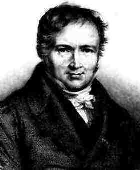"Life is good for only two things, discovering mathematics and
teaching mathematics"--Siméon PoissonMy thoughts exactly. I discovered the beauty in mathematics when I was 15. After that my goal was to study it without exactly knowing what I was going to be. I could say that totally coincidentally I ended up teaching in the best school possible: the school for adults who know why studying is important. Since I work late in the evening I am now able to study again. It is even more magical now than when I was young.
Galois, Evariste
Unfortunately what is little recognized is that the most worthwhile
scientific books are those in which the author clearly indicates what he
does not know; for an author most hurts his readers by concealing difficulties
If there weren't those authors, mathematics would not have developed.
Edwards, JonathonWhen I am violently beset with temptations, or cannot rid myself of evil thoughts, [I resolve] to do some Arithmetic, or Geometry, or some other study, which necessarily engages all my thoughts, and unavoidably keeps them from wandering
I do the same. I just use puzzles to calm myself. Picture puzzles give the amazing feeling of accomplishing something beautiful.
Egrafov, M.
If you ask mathematicians what they do, yo always get the same answer.
They think. They think about difficult and unusual problems.This is why there are legends about absent-minded professors. Concentrating on problems keeps their mind from noticing anything else. To me the most intruiging fact has always been the unusuality. Many discoveries originate from problems which seem totally irrelevant to other people.
Einstein, Albert (1879-1955)
How can it be that mathematics, being after all a product of human thought
independent of experience, is so admirably adapted to the objects of reality?Again one fact showing how wonderful mathematics can be.

No comments:
Post a Comment